The Fleshtones | Interview | ‘Way of the World’ from the new album ‘It’s Getting Late’
We’re thrilled to premiere ‘Way of the World’ from The Fleshtones’ latest raucous romp, ‘It’s Getting Late (…and More Songs About Werewolves).’
The Fleshtones’ latest album is a dynamic celebration of their signature “super-rock” sound. ‘It’s Getting Late’ is a blood-soaked celebration of rock ‘n’ roll’s wild spirit—one that feels as vital as a jolt of electricity straight to your veins. For over 45 years, these garage legends have thrived on the brink of chaos, delivering a relentless barrage of ear-splitting tracks. Their storied history is punctuated by unforgettable performances at iconic venues like CBGB, and albums like ‘Roman Gods’ are just essential!
The band says about the premiering track, “Thoughts on survival during stressful times… Some days you just have to let the weight of your worries fall from your shoulders and say ‘it’s just the way of the world’.”

“We felt nobody was quite doing what we were doing”
‘It’s Getting Late (…and More Songs About Werewolves)’—what’s the deal with the werewolf obsession? Are you guys just having a laugh, or is there something deeper going on here?
Peter Zaremba: We laughed in the face of success, not werewolves. Actually, it’s Los Straitjackets and Neanderthal Eddie Angel who are obsessed with werewolves. Compared to him, we just take an academic interest. It’s not like I assembled the “glow-in-the-dark” Aurora Wolfman model when I was a kid. Maybe Keith did, but werewolves are topical, don’t you think?
You’ve been tearing up stages since forever, and the energy’s still wild. What keeps you lot from burning out after all these years? Or are you just fueled by pure chaos at this point?
Peter: You keep answering your own questions, making this very easy for me. Nothing compares to the chaos of our shows through most of the ‘80s. If we had kept that up, we’d all be dead now. We prefer the “guided chaos” alternative. There’s still lots of room for the unexpected to happen, some momentary inspiration, and we can still play a set of coherent songs. Everybody wins.
Let’s talk ‘Roman Gods’. Do you even remember much from those sessions? What was in the air back then that made that record such a punch in the gut?
Peter: Considering the circumstances of the recording, it’s surprising that I remember it all as if it was the day before yesterday. Not saying what was in the water, so to speak; what was in the air was that we finally had a real record label, a real budget, and a creative and sympathetic producer in Richard Mazda, almost a decade’s worth of ideas, and we were ready to go for it, which we did. Although the Garage Revival and Paisley Underground were getting well underway, we felt nobody was quite doing what we were doing. It holds up.
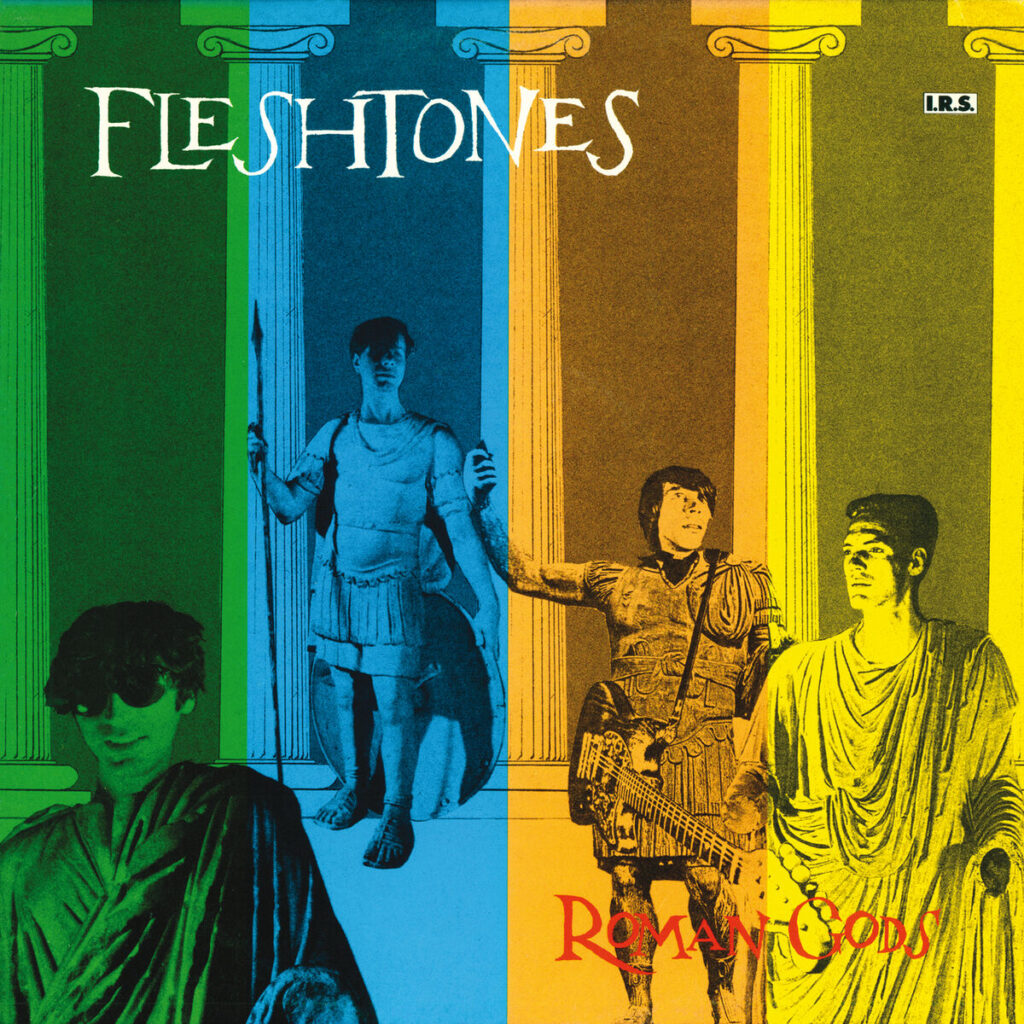
How did you lot even find each other in that mess of a New York scene back in the day? Did you know straight off that you were onto something, or were you just winging it like the rest of us?
Peter: Well, Keith and I found each other in high school (Flushing – where Andy Shernoff went). I’d seen Gordon skulking about the halls there and knew his brother Brian. Keith was boyhood friends with our future bassist Marek Pakulski in Maine. We had to cast around for a while to find the right drummer; that was the hard part, and a lot of them passed through our ranks before Bill overheard us talking about how we needed another drummer and introduced himself at a small Polish luncheonette in the East Village. Although we knew exactly the kinds of music that excited us, musically we really were winging it—in fact, learning to play as we went—except Bill, who had been professionally playing in bands since he was a young teen up in Troy, New York.
That Fleshtones sound—did it come together naturally, or did you have to beat it into shape? Was there a moment where you thought, “Yeah, this is what we’re supposed to sound like”?
Peter: The Fleshtones “sound”—or “super-rock”—kind of just came out of who we are and what we love—a great big greasy ball of everything we’ve heard, as some astute critic once said. It’s our great strength—and to some, a weakness, especially to the “purists” out there. Not 1966 garage enough! Not punk enough! etc. etc. By now, we ignore all that. Hearing the test pressing of ‘The World Has Changed’ 45 in 1980 might have been that moment, or maybe even listening back to our live performance at The M-80 Festival in 1979, or that first live broadcast for French radio. But it took a while for us to be happy with our work in the studio and to find the people who were happy to be working with us, rather than them trying to figure out how to ‘fix’ us, like on the Up-Front EP.
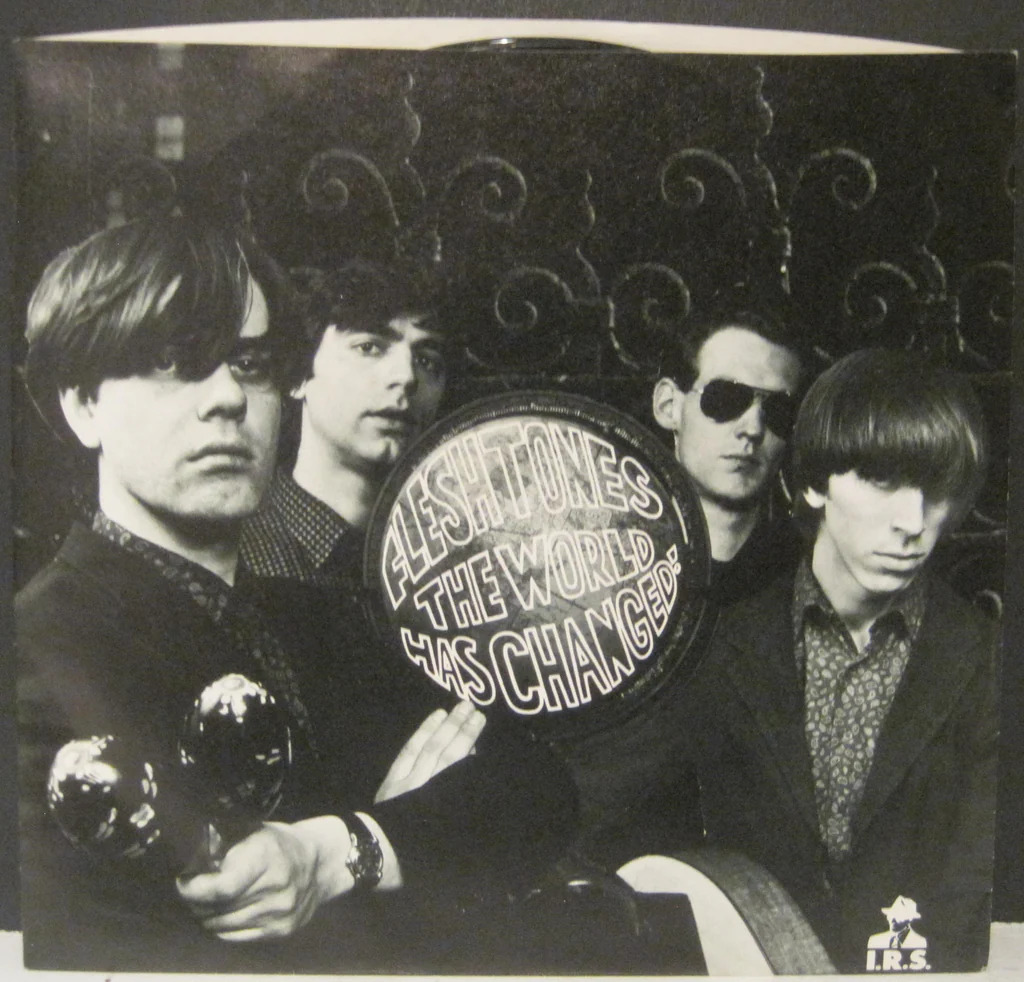
You are soon dropping ‘It’s Getting Late’—how’s it feel putting out new music when you’ve already laid down so many albums?
Peter: Considering how long we’ve been together, I really don’t feel we’ve put out too many records. A lot of bands would have put out this many records, made piles of money, become junkies, and wound up hating each other in such a shorter time. But as guys who started all this because we were fans and not musicians or aspiring rock stars, it’s still a thrill to see a new record with our names and music on it!
The live shows have always been pure madness—how do you keep that intensity up night after night? Or are you just as surprised as we are that you’re still doing it?
Peter: Well, I’ll say, after a very touch-and-go spring and summer, I was thrilled to feel the energy and, yeah, the magic on our recent shows up in Canada—our first for this year! It’s still intense thanks to Keith, Ken, and Bill, but I’ve got to say looking back at the night-after-night madness—and the days in between of the 1980s and ‘90s—is almost scary!
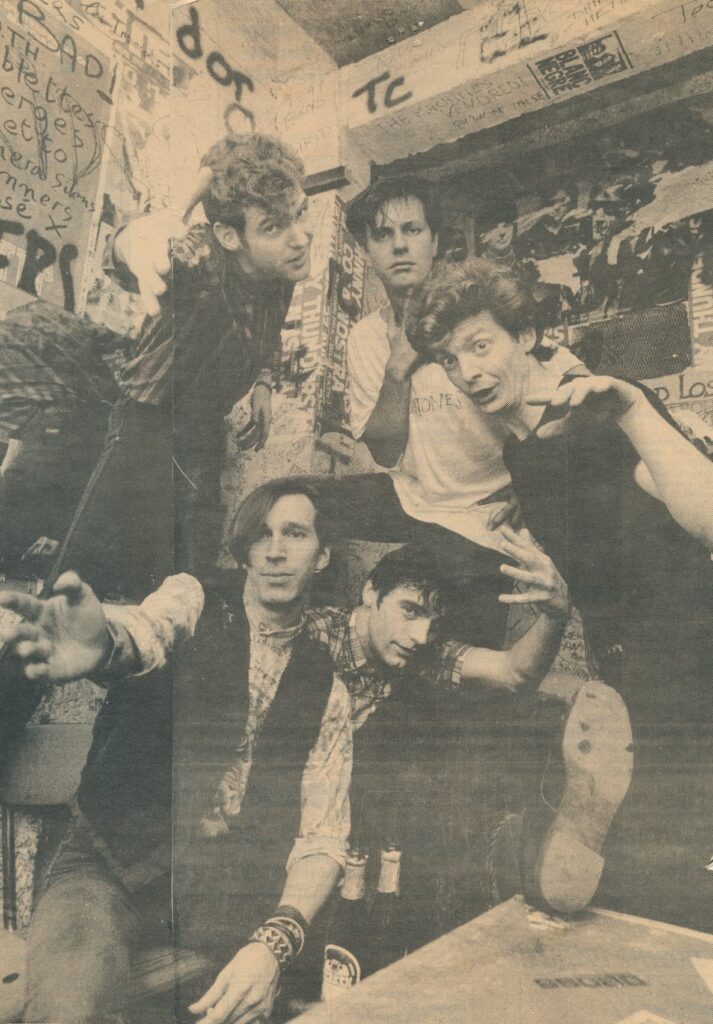
Your new record’s got that mix of humor and darkness, like it’s laughing in the face of doom. Where’s that balance come from—how do you know when to keep it loose and when to dig in?
Peter: Once again, you answer your own question; thank you. We hope we got the balance right on this record. Ironically, we realized that the passing of time—and of many friends and fellow rock and rollers—has placed us in a very serious position. But it’s a marvel that we’re still standing, more than standing—running all over the stage—and off it!
When you listen back to albums like ‘Hexbreaker!’ or ‘Roman Gods,’ do you ever think, “We’ll never get that kind of magic again”? Or do you reckon you’ve managed to keep it alive all this time?
Peter: I think, “Whew! Glad we survived making that record.” Really. Those are great records; well, at least ‘Roman Gods’ is. Perhaps ‘Hexbreaker!’ was too much delving into the dark side. I don’t lie when I say I think we’re getting better and better at making really listenable records, although we can’t replicate being 21 and high all the time forever.
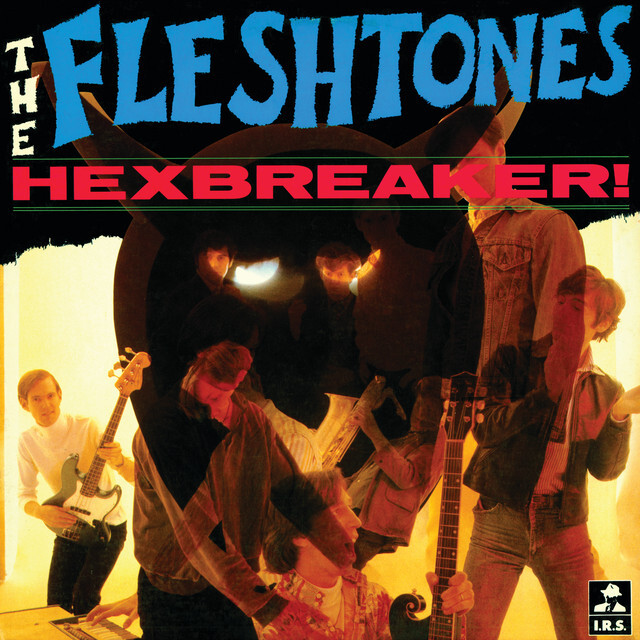
Who were your real influences when you got started? What records got your blood pumping when you were first thrashing out songs?
Peter: Come on now, man, to quote our president. It’s all right there in the grooves—The Ramones, The Dictators, of course British invaders like The Stones, Kinks, and Yardbirds, all the one-hit wonders that were on the radio when we were kids. Then some surprising influences that can definitely be heard by the discerning ear—disco and reggae, although we never recorded any lame attempts at pure reggae. Leave that to The Clash.
If you had to pick one track from ‘It’s Getting Late’ that nails who you are now, which would it be? Which one sums up the Fleshtones in 2024?
Peter: ‘It’s Getting Late’ would be the obvious choice, but I’d go for ‘Come On Everybody Getting High With You Baby Tonight’ ’cause that’s what we do and will keep on doing.
How’s it feel when you’re on stage playing an old banger from ‘Roman Gods’ right next to one of these new tracks? Do the old songs feel like dusty relics, or do they still hit just as hard?
Peter: It’s always a thrill playing something new because there’s the tension of not being sure of what you’re doing and how you’ll “pull it off.” That makes for a lot of energy—some of it from nerves. But there’s also that tension of “can we put that energy and excitement into older songs?” We give some of them a long rest, so we wind up having to re-learn them, which makes it kinda new again. That makes it challenging and fun for the audience too. It’s good to have a mix, right? The audience likes to hear old favorites but doesn’t want to hear the same set every time they see us. Some people have been coming for decades. Keep coming!!
Any stories from the early tours that still make you laugh—or wince—when you think about them? Give us a good one.
Peter: God, you could write a book about this, a very breathtaking and entertaining one at that. I’m gonna call on Brother Keith to help out with this one. Keith, over to you:
Keith Streng: Okay, how about laugh and wince at the same time…
We did a show in Decazeville, France, many decades ago with the Lyres and a French band in the foothills of the Clermont-Ferrand region, about two hours north of Montpellier. It was a complete disaster on many levels, but now when I think of this atrocity of a performance and what ensued, it makes me laugh and wince simultaneously.
The club was located in a small, unassuming mountain village, and the promoters and staff had high hopes for a super-charged rock and roll show. What they got was far from this. Upon arrival in the early afternoon, both bands, the Lyres and Fleshtones, were invited for lunch, which quickly turned into a full-blown drinking party, mainly having Black Russians and everything else alcoholic we could down!
The performance started with the French band being pelted with whatever fruit and food we could hurl at them, followed by the Lyres performing maybe 15 minutes of The Kinks’ track ‘It’s Alright,’ which they kept starting and stopping because they never normally performed it. Jeff kept restarting it!
But that did not compare to the Fleshtones’ entrance and spectacle.
The stage curtain opened for the Fleshtones trying to perform ‘The Dreg,’ with Gordon Spaeth choking Peter with his saxophone from behind to the beat, his knee dug into Peter’s back. Peter broke this wrestling hold, and Gordon immediately smashed the sax into a million pieces on the rear wall, which actually made for a beautiful light show with the pieces of the destroyed instrument flying into the stage lights.
This was too much for the Fleshtones’ sound man/road manager, Jaime, whose mental health was already questionable. He immediately took a mic stand and drove it through the sound desk, grabbed Gordon, and the both of them proceeded to steal the Fleshtones’ van and hit the road to God knows where!
I found myself in the Decazeville police department shortly after to report the theft. We were in the middle of a tour and needed our wheels! I was fuming and told the police they were armed and dangerous! At that moment, I was hoping they would be shot. They were not.
The next day was a day off, and the sun rose, and in the world that is the Fleshtones, order was restored and returned along with our van. Gordon came home, and Jaime, the sound man/road manager, was sent on the first plane back to the U.S., and the Fleshtones resumed and completed a highly successful tour and were, as always, great!
You can’t make this stuff up.
Peter: Indeed, Keith. And let me also add that Decazeville is in a part of France that Parisians think of in the way snooty New Yorkers think of the Ozarks. That afternoon before the concert/”festival,” all the bands were invited to the typical blue-collar bar that every small French town has; let’s call it Café De La Gare. A crowd of resentful locals soon gathered to gawk at the visiting rock and rollers scarfing down their rudimentary (but free) food and booze. Jeff Connolly of the Lyres pulled out his own bottle of hot sauce with a flourish, dousing his steak frites, loudly announcing it was the only way to make French food edible, further antagonizing the bar owner and the crowd.
The concert was held in a hanger-like Salle De Fête, or maybe it was the school auditorium/gym. Jamie stood on top of the soundboard, raised the metal mic stand above his head with both hands, then drove it through the soundboard, screaming, “I’m the star here!”
We spent that night at the clubhouse of the local Hells Angels. They shared whiskey and barbecued andouillette over an oil-drum fire with us, calmly advising us to forget about having the police set up roadblocks to shoot Jamie and Gordon.
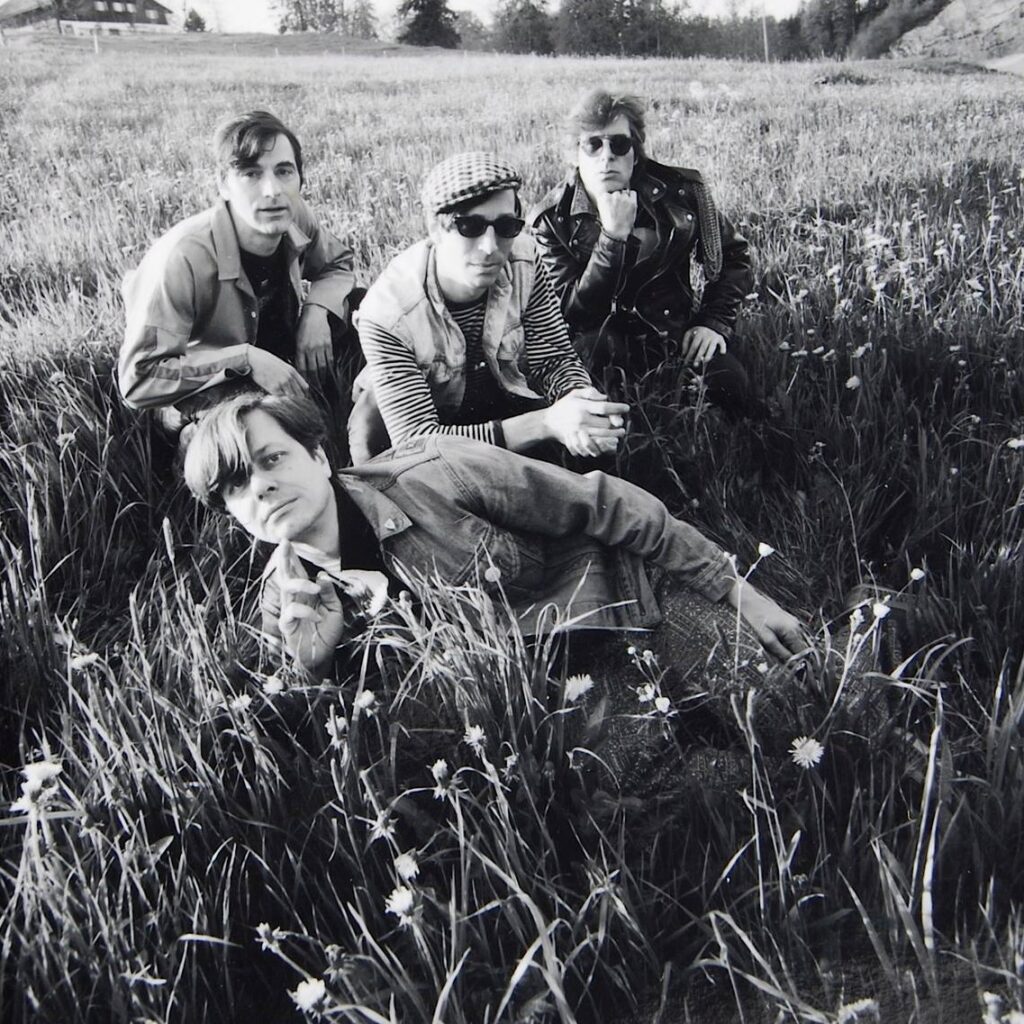
What’s been your “we made it” moment? Or do you even believe in that? Is there still a rush when a new record drops, like with ‘It’s Getting Late’?
Peter: We’ve managed to play and make records the way we want to for over 45 years, so maybe that’s “making it.” Having a lot of great bands tell us we were their inspiration helps too, although that can be frustrating as well. It would be great if this album “breaks through” and sells, but we have no illusions, so there will be no disappointments.
You’ve managed to keep the band together all this time—what’s your secret?
Peter: Having fun, loving our fans and each other, and, as Keith pointed out, always having something new to play instead of touring on an album from the ’80s and becoming an “oldies band.”
If you could soundtrack any old horror flick with your new werewolf tracks, which one would you pick? And yeah, you can cheat and use one of the old songs if you want.
Peter: Why cheat? I think the guys would still agree on Face of the Screaming Werewolf because the whole concept of the film is so utterly insane.
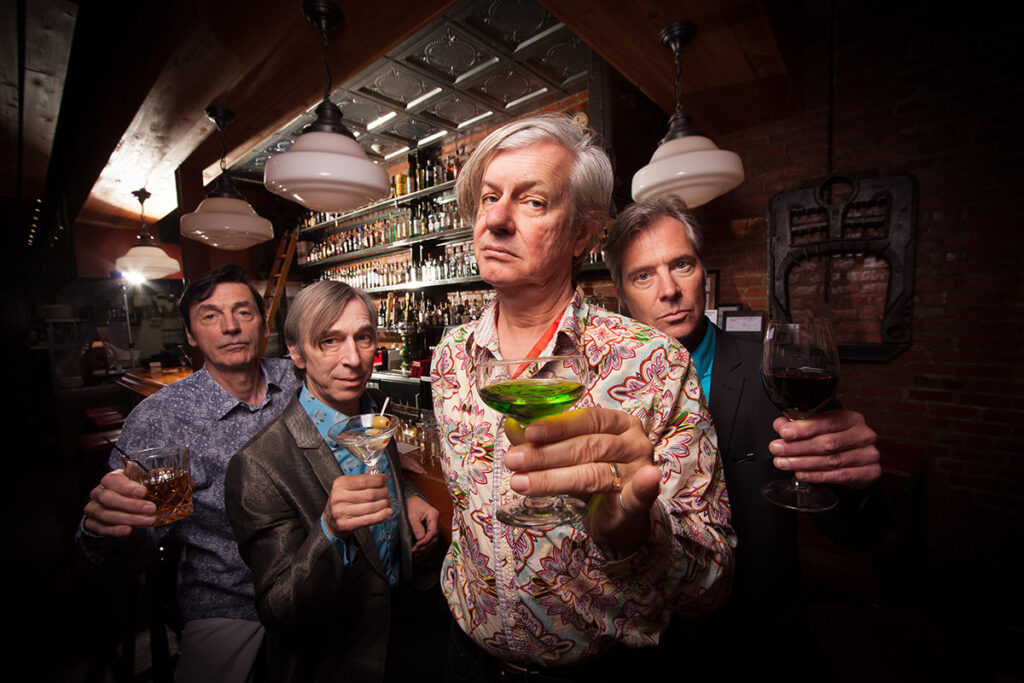
You’ve done a lot, but what’s still on the bucket list? Or are you just happy to keep on kicking and see where it takes you next?
Peter: Keep making more records, maybe finally play South America. We’ve already played China but don’t think we’ll ever be invited to Japan. We don’t wear costumes.
Klemen Breznikar
The Fleshtones Facebook / Bandcamp
Yep Roc Records Official Website / Facebook / Instagram / Twitter / Bandcamp / YouTube

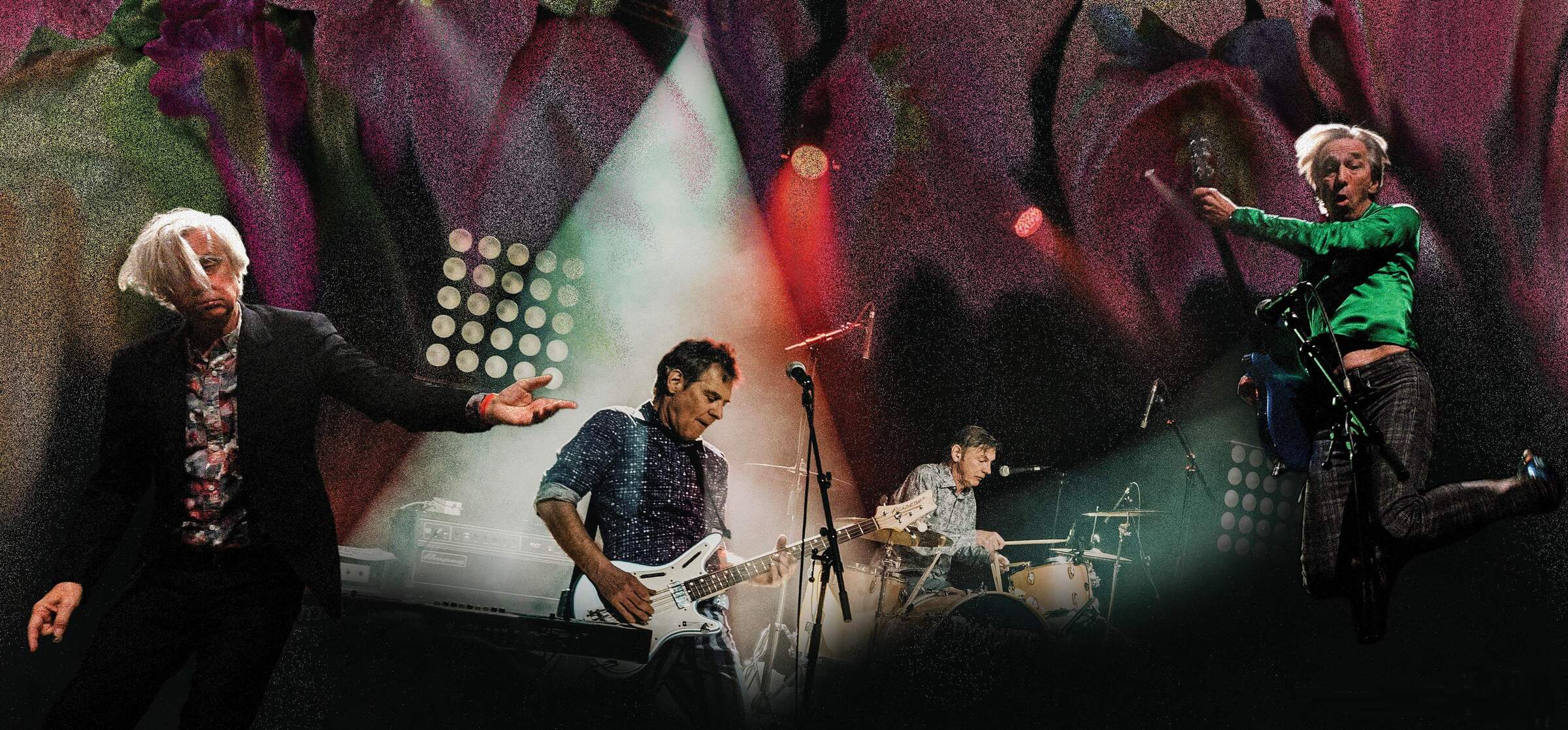

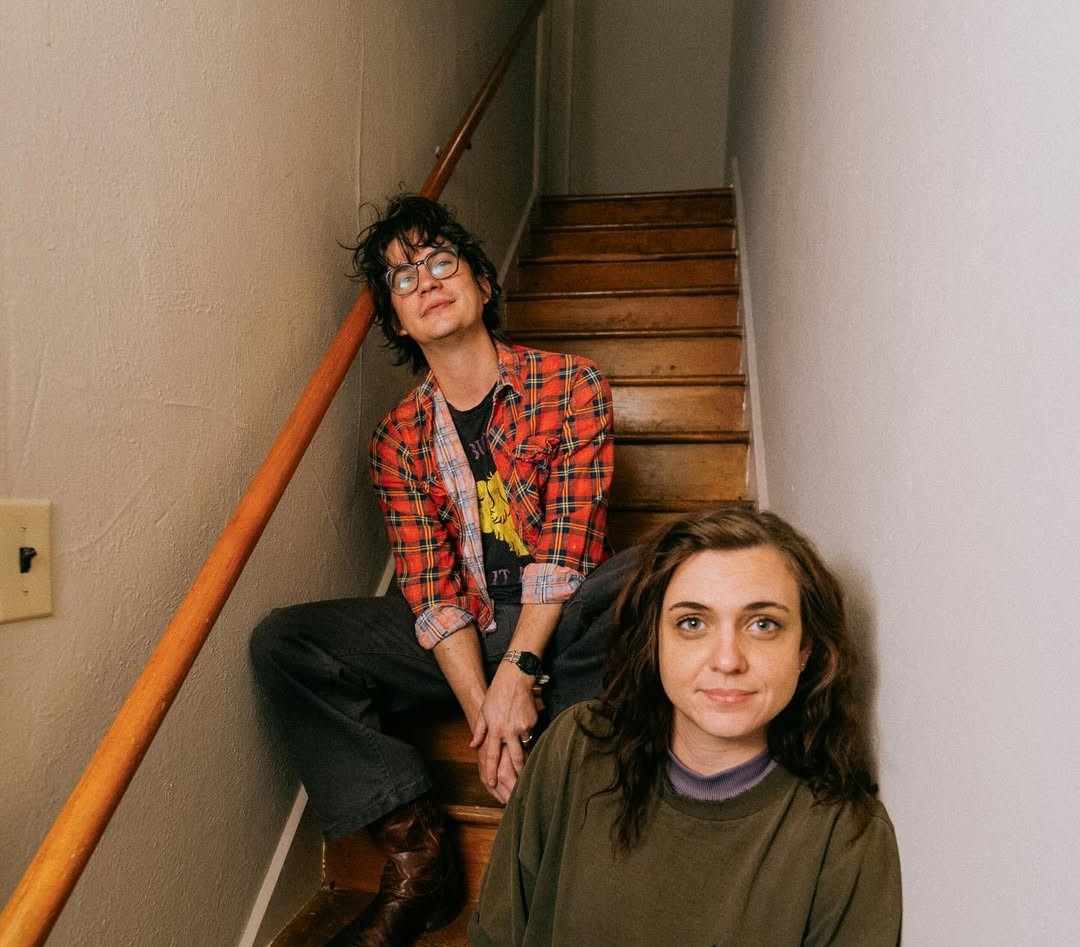
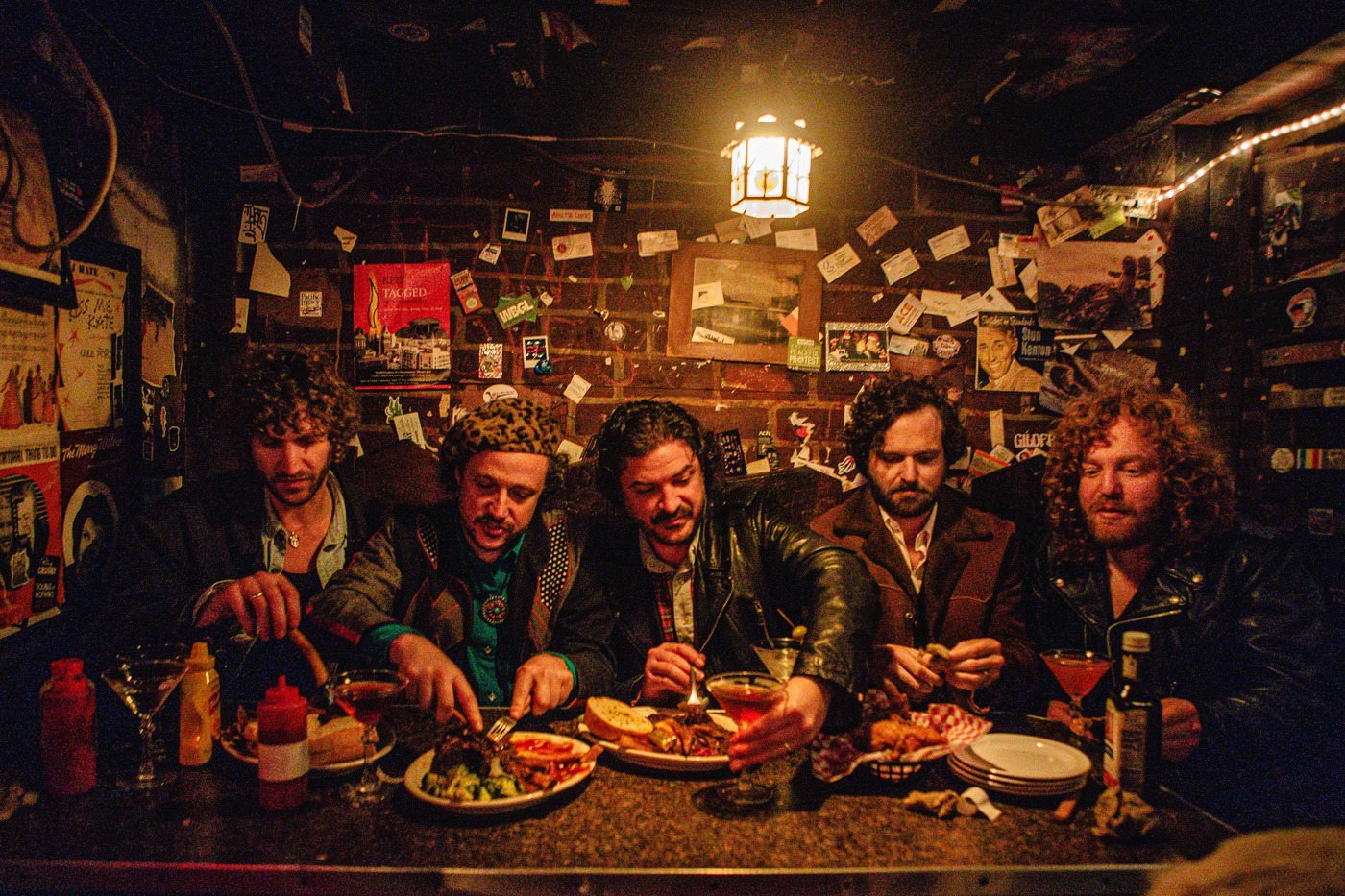
The greatest band in the world. SUPER ROCK FOREVER!!